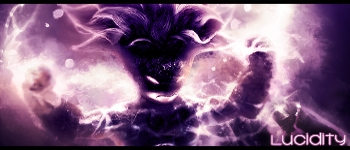this has been what iv been doing lately. You think about it, in your dream, your inner feelings always manifest, weather if it is happyness, calm, fear or negativity. The same seems to be true about now, which we call real life. |
|
Results 26 to 36 of 36
Thread: What is reality?
Hybrid View
-
07-28-2012 09:40 AM #1Member

- Join Date
- Feb 2011
- Gender

- Posts
- 190
- Likes
- 17
-
07-27-2012 05:24 PM #2Melting Rainbows Achievements:









- Join Date
- May 2012
- LD Count
- 24
- Gender

- Location
- United Kingdom
- Posts
- 522
- Likes
- 692
- DJ Entries
- 18
This reminds me of a video by ReeceJones on YouTube, really interesting if you have time to watch it: Lucid Dreaming: Dream or Reality? (Part One) - YouTube
The thing is, the only "real" there is, is something that we as humans can't comprehend. Our brains aren't wired to experience true reality, only our own, subjective realities. Therefore, dreams can't be any less real to us than waking life is.Check out my DreamViews Podcast with OpheliaBlue!

The best reason for having dreams is that in dreams no reasons are necessary.
No sailor controls the sea. Only a foolish sailor would say such a thing. Similarly, no lucid dreamer controls the dream.
Like a sailor on the sea, we lucid dreamers direct our perceptual awareness within the larger state of dreaming.
-
07-28-2012 03:32 PM #3Member

- Join Date
- Feb 2011
- Gender

- Posts
- 190
- Likes
- 17
-
07-28-2012 04:35 PM #4Just saw it, really interestinglol his saying exactly everything i wrote here , very interesting
its all facts, cant really be argues against and very interesting Although he did also mentioned the part which I discussed in my first post, which is that reality then is a sort of constant. Like he said it doesn't have to mean there isn't anything above that, but at the very least, that's our wakening life is the only stable thing we have experienced so far.
Although he did also mentioned the part which I discussed in my first post, which is that reality then is a sort of constant. Like he said it doesn't have to mean there isn't anything above that, but at the very least, that's our wakening life is the only stable thing we have experienced so far.

-
07-28-2012 06:02 PM #5Member

- Join Date
- Feb 2011
- Gender

- Posts
- 190
- Likes
- 17
if you pay closer attention, he says "thats the reason why people believe this is the only reality as it is more constant etc" he goes on to say that when your in a dream it is also constant and flows , you just dont remember when you wake up and when you look back on it, it looks distorted etc.
he uses a example about how when you get drunk one night and have a big one, the next morning you wake up and it feels the same as it was a dream and you remember bits and pieces, and the exprience doesnt seem constant, does it mean it wasnt?
or the same when your in a lucid dream and you think about expriences in the "real life" it also doesnt seem constant with any flow. but with each reality when your in it everything flows, is constant and makes perfect sence.
there are 2 parts to the video
-
07-28-2012 06:06 PM #6Writer/Artist/Potato Achievements:









- Join Date
- Jul 2012
- LD Count
- 22
- Gender

- Location
- Kaazi
- Posts
- 184
- Likes
- 98
- DJ Entries
- 86
Sometimes I wonder if dreaming is actually reality, and reality is actually our dreams...
 Oof.
Oof.
-
07-28-2012 10:57 PM #7Ah yes, just saw the entire second part.there are 2 parts to the video
I follow all his points, but from what I can see they are all based on the point of view of perception. And I do agree that when it comes to perception, it is hard to differentiate between dreams and waking life, from what I can see there actually isn't any difference at all; like he says in the video and that we've come to agree upon during the discussion in this thread. Dreams and waking life are either just as real or just as unreal, based on how we define the word "real", but ultimately they are equal experiences, one is not of lesser rank than the other. I've had lucid dreams that were so vivid and colorful that I got this weird sense of feeling more "real" than my wakening life, if that makes sense. Perhaps you have tried something similar? It's like all your senses increases, making you feel more alive than ever before. Your vision becomes more colorful and sharp, your emotions reach such a high that it's like you can feel yourself being alive at the time. It's hard to explain really, hope it makes sense
Though I do feel like he's missing one important aspect since all he does is talk from the view of perception, and that is as I've already mentioned stability. Something external from your perception. Let me explain it a littler clearer.
Let's say you lose a close relative like your mom. If this happened in a dream, you would wake up from it and have a clear memory of this sad event taking place right there in your dream, yet when you get up from bed and go to say good morning, she will be right there, alive and well. While dreaming, this might have given you extreme emotions of sadness and loss. The feelings we perceive in the dream is equal to those we will experience in waking life, no doubt about that, we all agree there, one is not less "real" than the other. But the state of your dreaming world and the state of your waking world is clearly two different things. Your mom died in your dream, though she is alive when you awaken.
When you go to sleep again at night, you can then again have a lucid dream where your mom is alive, even though she died in your previous dream and you clearly recall this.
If you instead lost your mom in our wakening life, it would affect you in an entirely different way and more serious way. It could have serious psychological consequences for you, and also the fact that unless your dream world, your mom won't come back in this one. So here there is clearly some form of difference between the two worlds. Losing your mom in a dream, you are able to wake up and simply brush it off, saying "ah, it was nothing but a dream". On the other hand, lose her in wakening life, and it is suddenly not that simple.
Why is it that this huge difference exists? And one answer I could use here was simply state.
I'm not saying this is a way of differentiating between what should be considered real or not, as we all clearly have different ideas of what real is supposed to mean. My point is simply that if we look away from perception and try to define reality using other means, there clearly exists differences between dreaming worlds and our wakening world in the form of state, where the state of our wakening world seems to be constant, while the state of our dream world does not.
This was just one interesting thing I was thinking about. Using this you could make a definition which said that: Reality is a constant state. Using this specific definition, dreams, then, would not be real while our waking life would be.
This is just one way of defining reality, I'm not saying it's more correct than other ways of saying it, another definition could also be, as we've already discussed: Reality is what we perceive with our senses, that is, perception is reality. In this case, dreams and wakening life are both as real.
I agree that when it comes to perception, everything simply is. Nothing is more real than the other.
There is so many ways in which you can define reality depending on what perspective you choose to take. I'm not sure if it does any good, then, to come up with any one specific definition. Man, after this discussion I will be careful to use such a loosely defined word again
[EDIT]
On closer thought I also do realize that if you want to use state as any definition, it might become hard to say what constant state is supposed to mean. If we imagined that we had some sort of device which could bring molecules back together again in the exact same way which they were before (like a piece of paper getting ripped apart and then put together again), you would then run into trouble where our wakening life would no be real anymore Anyways the main point was just that there, for some reason, seems to exist an emotional priority between our waking life and dreaming life. Things which happen in wakening life seems to be perceived as way more serious. Where to go from there I'm not sure yet, it was just a thought I had been playing around with
Anyways the main point was just that there, for some reason, seems to exist an emotional priority between our waking life and dreaming life. Things which happen in wakening life seems to be perceived as way more serious. Where to go from there I'm not sure yet, it was just a thought I had been playing around with 
Last edited by SomeDreamer; 07-28-2012 at 11:15 PM.

-
07-29-2012 07:13 AM #8Member

- Join Date
- Feb 2011
- Gender

- Posts
- 190
- Likes
- 17
iv been to diffrent places and seen many beautiful places, to this day the most beautiful places iv seen has been in my dream, absoloutly breath taking, places i had never seen or imagined before, that by it self says something.
you can always sharpen your senses and make dreams more vivid by commands. E.g "increase vividness", "increase my senses"
well there is alot we dont know or undrestand but The basic principle is that in one reality were eternal and in this one its temporarely, so we have to think why this could be the case.. My opinion so far is that we obviously in this reality temporarely, like when you go on a holiday. I also believe your here to exprience diffrent emotions, and learn common sense and logic, things that you dont get tought in a dream state, so when you come and get all this exprience you can take back to where you originally come from. Maybe the reason for this reality is to be able to undrestand the primary reality of other dimensions such as "dream world".
If you never existed in this world then there couldnt be a lucidity, as when you become lucid what you learnt in this reality comes to mind and effect hence it feels like your in heaven. Maybe thats the aim of life to live in heaven (lucidity), to be able to achieve that you need to make a stop in this reality
People get upset over loved ones death because in their mind they believe this to be the only reality, so they believe they have lost somehting for good, those emotions really come from the false ego, of loosing something or not having soemthing regardless of what the reason is.
i disagree on the constant part. When your in a dream is it constant until you wake up and think back on it. It is the same when your dreaming and think about the events of this reality, then this reality doesnt seem constant and your dream world seems like the constant one. Like in the video the guy says when you get drunk and look back on it the next day it doesnt seem constant, but you know it would have had to been, only because you were drunk. But at the time when you were drunk everything seemed constant
i think reality is just bieng and what your expriencing in the "now" moment. Only this moment your expriencing is reality, once 1 second passes its no longer reality its a memory. if you read the book "The Power of Now, by eckart tolle" youll undrestand what i mean
-
07-29-2012 12:02 AM #9Melting Rainbows Achievements:









- Join Date
- May 2012
- LD Count
- 24
- Gender

- Location
- United Kingdom
- Posts
- 522
- Likes
- 692
- DJ Entries
- 18
I don't see your theory being all that different between waking and dream worlds.
You gave the example that, if you lose your mother in a dream you can wake up and shrug it off, saying it's just a dream. You don't shrug it off while still inside the dream though.
If you lost your mother in waking life and then went into a dream, it would be just as easy to shrug off her death, particularly if you were experiencing a non-lucid dream with her.
My point is that your examples were unfair comparisons, as you compared a constant waking-life reality, versus a dream reality fading through into a waking-life reality.Check out my DreamViews Podcast with OpheliaBlue!

The best reason for having dreams is that in dreams no reasons are necessary.
No sailor controls the sea. Only a foolish sailor would say such a thing. Similarly, no lucid dreamer controls the dream.
Like a sailor on the sea, we lucid dreamers direct our perceptual awareness within the larger state of dreaming.
-
07-29-2012 12:06 AM #10Yes, that is another fair pointYou gave the example that, if you lose your mother in a dream you can wake up and shrug it off, saying it's just a dream. You don't shrug it off while still inside the dream though.
If you lost your mother in waking life and then went into a dream, it would be just as easy to shrug off her death, particularly if you were experiencing a non-lucid dream with her.
My point is that your examples were unfair comparisons, as you compared a constant waking-life reality, versus a dream reality fading through into the waking-life reality. Using those kind of examples you would of course limit yourself to only what we have experienced so far. That is, the idea would only work to the extend that our wakening life is an absolute and there is no "upper levels" besides that.
Using those kind of examples you would of course limit yourself to only what we have experienced so far. That is, the idea would only work to the extend that our wakening life is an absolute and there is no "upper levels" besides that.
And calling it a theory would be giving it way too much credit Technically it would be, at best, a light hypothesis
Technically it would be, at best, a light hypothesis 

-
07-29-2012 10:03 AM #11
We are but dust in the wind.
Similar Threads
-
A Theory About Thoughts' vividness in Dream Reality vs. Real Reality
By spiralsofgold in forum Beyond DreamingReplies: 12Last Post: 10-27-2011, 11:16 PM -
Dreams that feel great and you wish are reality but then they are not reality
By giogoMoget2 in forum General Dream DiscussionReplies: 14Last Post: 02-26-2011, 02:30 AM -
Why do dreams always feel like reality, but reality never feels like a dream?
By Lydia in forum General Dream DiscussionReplies: 11Last Post: 10-29-2010, 08:26 PM -
Reality Checks and Reality
By Tengu in forum General Lucid DiscussionReplies: 8Last Post: 11-25-2007, 02:47 AM




 6Likes
6Likes LinkBack URL
LinkBack URL About LinkBacks
About LinkBacks





 Reply With Quote
Reply With Quote


Bookmarks